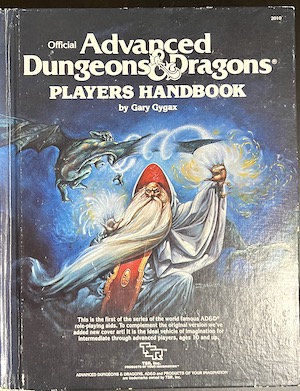Is your favorite self-improvement guru a fraud?
(spoiler: probably not)
In my 10 years as a Senior Vice President at Wells Fargo, I was treated to a lot of leadership trainings, each centered around its own assessment tool.
Through all these assessments, I learned my strengths, my other strengths, my lifestyle, my leadership style, my intercultural competence, my core values, my workplace communication style, my personality type, and many other things. (Wells Fargo did not, however, teach me my love language or my personality color or my other other strengths.)
One of my top strengths, according to one of those assessments, is “practices self development.”
No shock there. I geek out over these things. While regular people are faking their own deaths to get out of the self-development workshop by 1 p.m., I never want the class to end. I am not normal in this area.
But the self-improvement industry exhausts me, for two reasons:
The cult of the charismatic personality
We are all drawn to charismatic personalities, but people’s obsession with their favorite self-improvement guru actually undercuts the message those gurus are (or should be) selling.
If you look to your favorite guru for guidance because you want to be just like them, you aren’t understanding the purpose of self development. The goal of self development is to become the best you that you can possibly be. Sounds trite and makes me gag when I read those words out loud, but it’s true.
My job as a coach is to help you figure out who you are and how to be a better you, not to tell you how I became my best me (though my journey may inform your process). And certainly I don’t want you to be like me. I want you to be like you, except the real you. Not the one everyone else tells you you should be.
For example, when I was promoted to lead my department at Wells Fargo, I was replacing a wonderful leader who had a powerful personality, a take-no-prisoners approach, and a relentless attention to detail. Having just gone through StrengthsFinder, I knew I did not have to fill her shoes… I had to fill my shoes. I had to lead using my style, not hers. Otherwise… disorder! Catastrophe! Anarchy! In short, we’d have a ghastly mess.
We can certainly admire the gurus for their insight, their wisdom, their charisma, and their work ethic. (I absolutely do, in the way I admire Alex Morgan for her soccer ability.)
They are successful and famous and popular for multiple reasons, after all.
It isn’t just luck that makes someone famous and followed by the masses.
The need for the “one true methodology”
The other aspect of the self-improvement industry that exhausts me is everyone’s need for the “one true methodology.” On LinkedIn I regularly see posts like “Forget mindfulness! Mindlessness is the new mindfulness!”
I made that one up, but you can see it, can’t you? Someone claiming that mindfulness is the thing of the past, and only idiots get suckered into it. Now, you should be emptying your mind of everything (which, as an expert in an unregulated industry, I have branded mindlessness (trademark pending) and written a book, created an online course, and built a methodology which you can get certified in for only $3,999).
Oh wait, I’m too late.
The truth is, each of these different methodologies and assessments has value and merit.
The problem comes when we expect any one on its own to be the one true assessment and one true method that will make us happy/successful/healthy/confident/attractive/whatever.
And then we have to deal with people who have found one that works for them insisting that it will work for everyone. But that’s not how self-development works. Nor is it how epiphanies or becoming woke work, but that’s for a different post.
The best thing about standards
One of my favorite quotes that was popular during my software development days was
“The nice thing about standards is that you have so many to choose from.”
Widely attributed to Andrew S Tanenbaum
The same is true with self-development approaches and assessments. For example, here are the standards I have learned, chronologically:
- The 12 Zodiac signs
- The 9 Alignments
- The 16 personality types
- The 5 love languages
- The 9 personality types
- The 34 strengths (but only 5 really matter)
- The 17 strengths (but only 5 are the “tent poles”)
- The 12 LifeStyles
- The 4 communication styles
- The 24 strengths (but only 5 matter most) (just kidding the other 19 matter, too)
- The 4 thinking styles
- The 9 saboteurs
- The 16 armors

I have not actually paid to be certified in any of those, though I’m deeply familiar with several, and some have proved useful when working with clients.
The second best thing about standards
The second best thing about standards is that if you don’t like what’s available today, just wait until next year. There’s sure to be a new guru with a new method that they’ve created a clever brand for.
In fact, I’ve met some people trying to do just that. It’s hard to stand out as a coach, no matter what your niche or expertise. Creating your own branded methodology is an attractive option.
I view myself as a practitioner. I want to understand all the tools available, be familiar with a broad spectrum of approaches and schools of thought.
That way, when you come to me for help, I can reach into my bag of guru tricks and have a much better chance of pulling out one that will work for you.
How to make the most of all these options
We need lots of options from lots of self-development gurus. Why? Because there is no one best method.
I take that back.
The best method is the one you actually use.
Let me say that again, in a pull quote so you can share it and link back to this post.
The best method is the one you actually use.
Peter Dudley, Gray Bear Coaching
Each of these assessments is simply an entry into a conversation. Each gives you a language you can use to become more self-aware, and a framework that will help you create exercises and habits that lead to improvement.
Personally, I am a fan of strength-based approaches. I think stripping everything away down to your core values is a prerequisite for authenticity. I believe understanding communication styles is important for team dynamics. I have found wisdom and a powerful framework in the Positive Intelligence description of self-sabotage. I enjoy reading my horoscope but don’t consider it actionable information.
I pick and choose from these frameworks depending on the problem I am trying to solve in my own life, or the improvement I want to make.
I can introduce you or your team to any of them, or other assessments such as 360 feedback, values exercises, writing and communication skills development, and much more.
You will never see me listed as a self-improvement guru in the pantheon of self-help. I am a practitioner.
I simply want to help each person find what will work best for them. I want to help leaders and teams use the tools that will make them more effective.

No, probably your favorite self-improvement guru is not a fraud
The self-improvement industry is full of useless noise and misinformation. It can be exhausting and demoralizing trying to sort out the experts from the charlatans from the well-meaning incompetents.
But there’s an incredible wealth of talented practitioners who have done the work to educate themselves, and who bear a lifetime of experience and scars from struggling in the arena.
Some of the self-improvement gurus may be frauds. The more self-congratulatory and convinced of their own wisdom one is, the more wary you should be.
Except Mary Poppins. She is about as self-congratulatory and convinced of her own wisdom as a person can be, yet she is practically perfect in every way.
Video evidence that there is, in fact, a personality test that is 100% accurate.



2 Comments
Take control of your career by not doing the things you already aren’t doing · September 7, 2022 at 5:08 am
[…] I pointed out a couple of weeks ago, there are tons of assessments you can do to find out what your strengths […]
When taking over a team, answer these two questions · January 24, 2023 at 6:42 pm
[…] do a strengths assessment. I don’t care whether you choose StrengthsFinder, VIA Strengths, Enneagram, Positive Intelligence, Myers-Briggs, or one of the many o…. I like different ones depending on the context. (In the context of this blog post, I’d lean […]